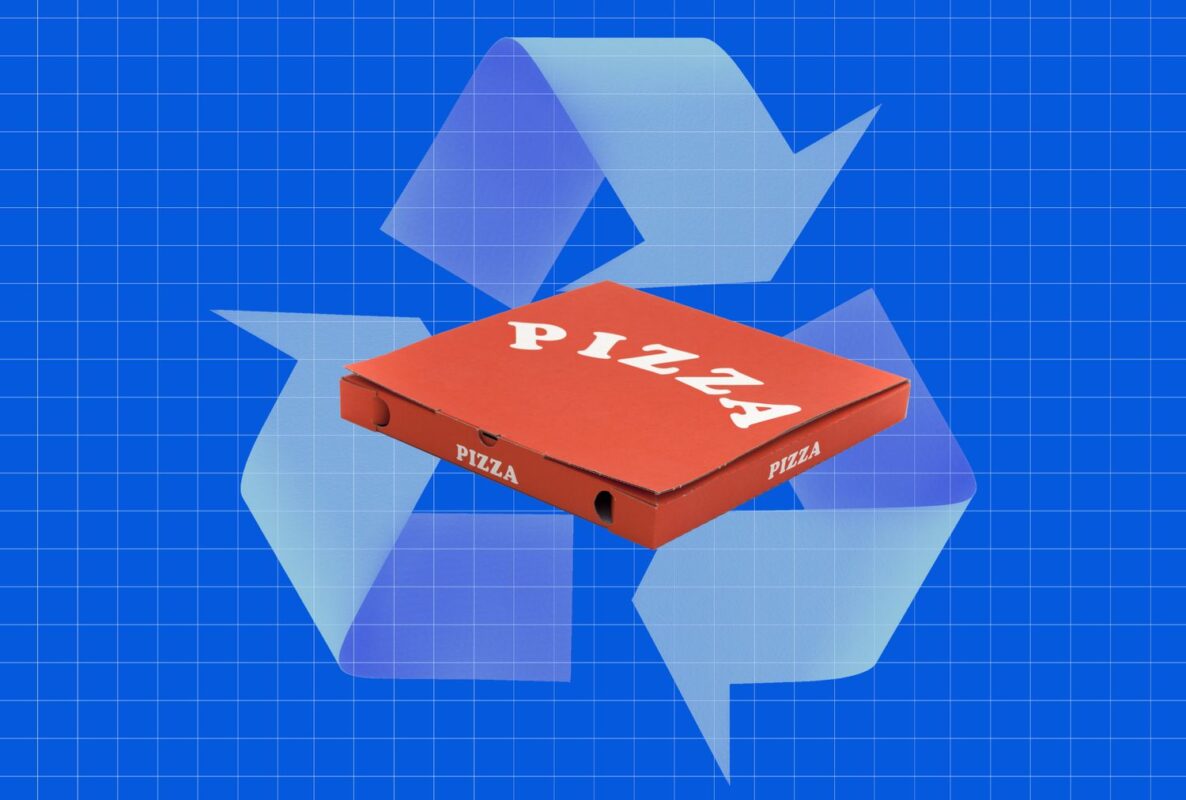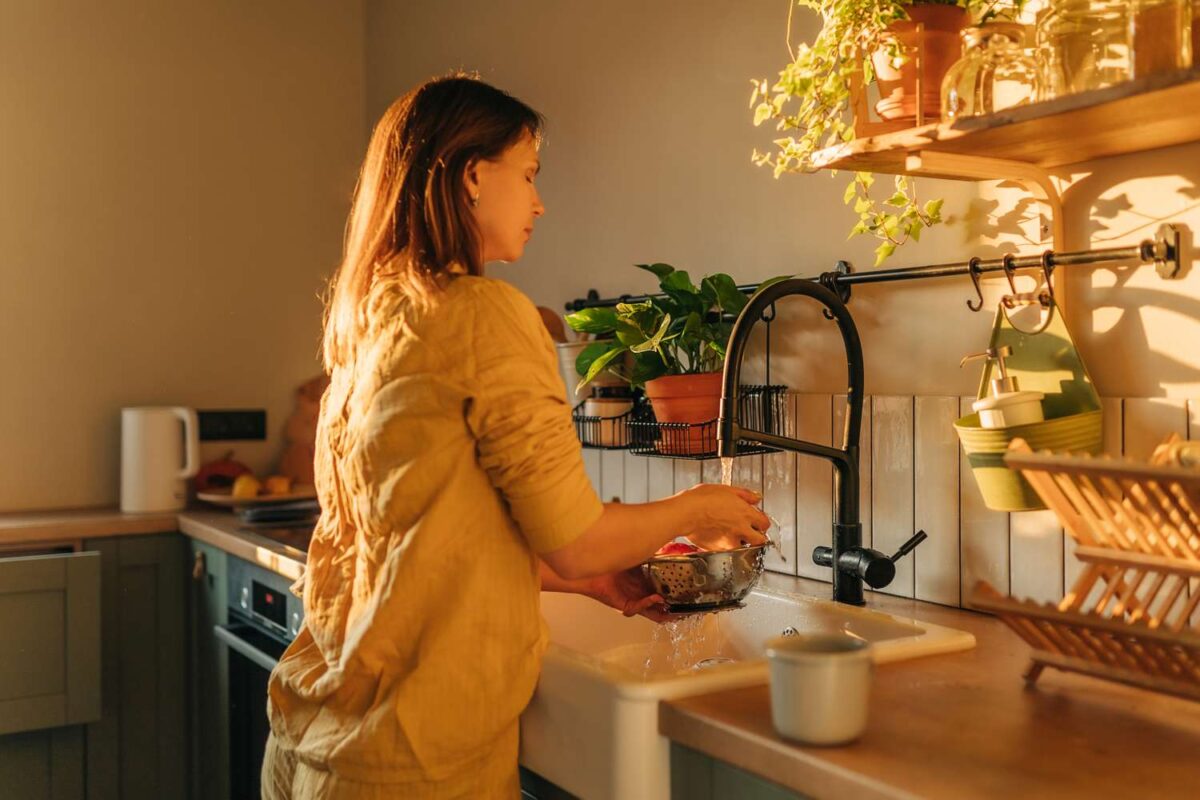Blog
The #1 Way to Get Rid of Ants in Your Kitchen

- The best way to get rid of ants is using borax or boric acid bait that they carry back to the colony.
- Ants love kitchens because of food crumbs, grease and water—so keeping things clean is the first step.
- After using bait, clean with vinegar and seal cracks to stop ants from coming back again.
My kitchen is often home to many wonderful things, like Saturday-morning pancakes with my daughters, fish and chips anniversary dinners for my wife and countless recipe creations. It is both the heart of our home and my primary workspace. It also happens to be something of a comfortable habitat for pests, as I’m constantly battling back little ants that crawl across my countertops.
With this very real (and disgusting) problem in my home, I wanted to identify the absolute best way to get rid of ants from my kitchen. I reached out to a handful of pest control and cleaning experts to help clear up these ants once and for all. As it turns out, there is a straightforward method to eliminate ants: using borax-based or boric acid baits, which are available at hardware stores and even some grocery stores.
Getting Rid of Ants
Eliminating the ants you see on the surface of cabinets, countertops, the sink or a trash can is not enough to actually rid your kitchen of the little pests. Instead, you need to target the actual colony of ants. A good-quality bait will do just that: ants will crawl into the bait and bring it back to their colony, effectively poisoning all ants at their home.
Look for borax-based or boric acid ant baits, says Nicole Carpenter, president of Black Pest Prevention. “Keep the bait out for at least 7 days and don’t kill the ants you see near the bait because they’re actually doing you a favor by bringing the poison home.” You can find ant bait traps in your local hardware or grocery store; look for ones with borax. You can also buy boric acid separately and make your own bait—just be sure to follow the directions on the package.
Boric acid is a common insecticide used in the pest-control industry, says Scot Hodges, A.C.E. Certified Entomologist and vice president of professional development and technical services at Arrow Exterminators. “When consumed, ants pass it along, causing the demise of numerous colony members. Its slow-acting nature takes 48 to 72 hours to eliminate ants.”
While boric acid is toxic to bugs, it’s safe for humans and pets if used correctly, Hodges says. “If you are concerned about safely applying boric acid in your kitchen, you can call a local pest control professional. Not only will they ensure any treatment is applied correctly, but they will be able to identify the species of ant, which can help you better address the problem.”
Why Ants Love Kitchens
Pests in the kitchen are undoubtedly attracted to food spills and leftover crumbs, so it’s no surprise that ants, too, love kitchens. But it’s not actually just the random crumb or two that makes kitchens such a common spot for an ant infestation.
“Crumbs and spills are a big part of why ants zero in on kitchens,” says Nikki Torgerson, owner of Advanced Bed Bug Preparation, which specializes in extreme clean-ups and infestations (including ants). “It’s not just sugar either, any food source, even grease or pet food, can draw them in fast. They’re super scent-driven and once one ant finds a way in, it leaves a trail for its buddies to follow.”
Easy access to water is another big reason ants love kitchens. “Ants like easy paths and water sources, and cutting off leaks and moisture problems can make your home much less inviting,” explains Trenton Frazer, at Aptive Pest Control. “It’s also smart to store your food in airtight containers, especially sweets and baked goods that ants love.”
An ant will leave behind a pheromone trail once it identifies a food or drink source, like that grease stain next to your stovetop or those drops of water that collect behind your faucet. That trail will then direct other ants to the source, explains Juan C. Rezk, chief marketing officer at Certus. “Their sense of scent is exceptionally accurate,” he says. “This is the reason why it frequently appears as though they appear overnight.”
Keep Ants Away
While bait traps are considered the gold standard for many in the pest control industry, it’s important to take further steps to ensure that your kitchen is less than ideal for future infestations. Carpenter recommends starting by giving your kitchen a good cleaning, which will help erase the pheromone trails that ants leave behind.
Think a bit outside the box when cleaning your kitchen. Clean under the toaster, behind trash cans, under your refrigerator and anywhere crumbs and grease can build up, Carpenter says.
A solution of 50/50 white vinegar and water is an effective tool at cleaning your kitchen and eliminating ants’ pheromone trails, says Ahmed Mezil, chief executive officer and founder of Hellamaid. “Frankly, most store-bought ant sprays are overkill and not something I’d want near our food prep areas. This vinegar approach is safe, natural and works better long-term because it breaks their communication.”
Once your kitchen is cleaned, the pheromone trails are destroyed and the ant baits have killed off the colony, you’ll want to seal obvious entry points. “Buy a good-quality exterior-grade caulk, like silicone or latex caulk, and use it to fill cracks and gaps around windows, door frames, baseboards, and where pipes or cables come through the wall,” Carpenter recommends. “For gaps under doors, add weatherstripping or a door sweep so ants can’t crawl underneath.”
The Bottom Line
Ants are a nuisance in the kitchen, attracted to the easy access to food and water. An ant bait trap that contains borax, or boric acid, is effective at killing the colony and is safe when used as instructed. Be sure to give your kitchen a thorough cleaning with vinegar-water to disrupt pheromone trails, and seal off exterior entry points with caulk. Take these steps to get rid of ants in your kitchen once and for all.












